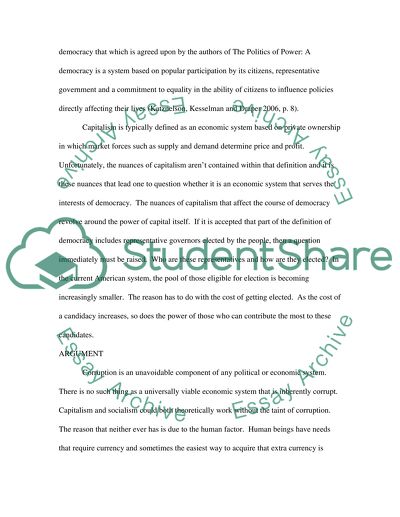Cite this document
(Is Capitalism a Hindrance to Democracy Essay Example | Topics and Well Written Essays - 1750 words, n.d.)
Is Capitalism a Hindrance to Democracy Essay Example | Topics and Well Written Essays - 1750 words. https://studentshare.org/law/1503224-is-capitalism-a-hindrance-to-democracy
Is Capitalism a Hindrance to Democracy Essay Example | Topics and Well Written Essays - 1750 words. https://studentshare.org/law/1503224-is-capitalism-a-hindrance-to-democracy
(Is Capitalism a Hindrance to Democracy Essay Example | Topics and Well Written Essays - 1750 Words)
Is Capitalism a Hindrance to Democracy Essay Example | Topics and Well Written Essays - 1750 Words. https://studentshare.org/law/1503224-is-capitalism-a-hindrance-to-democracy.
Is Capitalism a Hindrance to Democracy Essay Example | Topics and Well Written Essays - 1750 Words. https://studentshare.org/law/1503224-is-capitalism-a-hindrance-to-democracy.
“Is Capitalism a Hindrance to Democracy Essay Example | Topics and Well Written Essays - 1750 Words”. https://studentshare.org/law/1503224-is-capitalism-a-hindrance-to-democracy.


